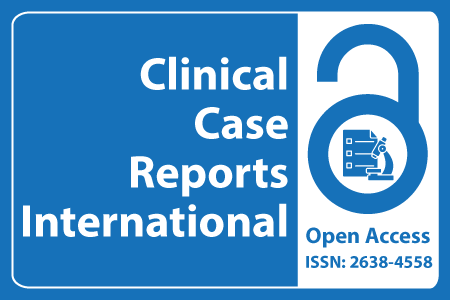
Journal Basic Info
- Impact Factor: 0.285**
- H-Index: 6
- ISSN: 2638-4558
- DOI: 10.25107/2638-4558
Major Scope
- Nephrology
- Toxicology
- Lung Cancer
- Autism
- Anatomy
- Allergy & Immunology
- Preventive Medicine
- Breast Neoplasms
Abstract
Citation: Clin Case Rep Int. 2022;6(1):1402.DOI: 10.25107/2638-4558.1402
Assessment of Knowledge, Attitude, and Practice of Colostrum Feeding among Lactating Women in Northeast Ethiopia
Tadese M, Kebede WMand Mulu GB
Department of Midwifery, Debre Berhan University, Ethiopia
Department of Nursing, Debre Berhan University, Ethiopia
*Correspondance to: Mesfin Tadese
PDF Full Text Research Article | Open Access
Abstract:
Background: Early initiation of breastfeeding along with colostrum is the key pathway for reducing malnutrition and preventing child mortality. World Health Organization (WHO) recommends every newborn baby to feed breast milk within 1-h of birth and feed colostrum. However, in Ethiopia, colostrum feeding is poorly practiced and culture makes a difference in the acceptability of colostrum. Thus, the study aimed to assess the knowledge, attitude, and practice of colostrum feeding among lactating women in Northeast Ethiopia, 2021. Methods: An institution-based cross-sectional study was done in Debre Berhan town from May to June 2021. A systematic random sampling technique was used to recruit 308 participants. The data was cleaned, coded, and entered into Epi-Info software version 7.2.1 and exported to SPSS version 24.0 statistical software for analysis. Univariable analysis was computed and the finding was summarized using frequency tables. For continuous variables, means and standard deviations were computed. Result: The overall prevalence of good knowledge, favorable attitude, and good practice of colostrum feeding among participants was 74%, 69.4%, and 56.2%, respectively. Believe that colostrum feeding cause’s abdominal pain and diarrhea (51.2%), and culture (30%) were the main reasons for avoidance of colostrum. About 26.9% of mothers initiate prelacteal feeding. Butter and non-human milk were the commonest prelacteal feedings. Conclusion: The knowledge, attitude, and practice of colostrum feeding were very low. Health education dissemination should be given to all reproductive age groups, pregnant and postnatal mothers, and community members regarding the importance of colostrum and avoidance of prelacteal feeding. Besides, emphasis should be placed on harmful cultural practices to increase the level of practice.
Keywords:
Knowledge; Attitude; Practice; Colostrum; Ethiopia
Cite the Article:
Tadese M, Kebede WM, Mulu GB. Assessment of Knowledge, Attitude, and Practice of Colostrum Feeding among Lactating Women in Northeast Ethiopia. Clin Case Rep Int. 2022; 6: 1402.













